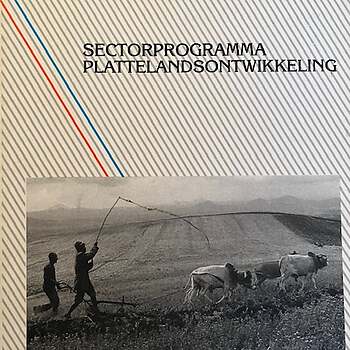Agricultural subsidies were abolished and structural adjustment programs were implemented reflecting the thinking that developing countries should rely on non-governmental and private sector initiatives and that development should be embedded in decentralized structures including local governments and local interest groups. Rural development initiatives were often independent of national institutions and policies and therefore not necessarily sustainable on the longer term. They also tended to divert attention from agriculture as the main source of income for people living in rural areas, opting instead to focus on the social sectors and infrastructure.
A broad-based rural development program was launched by the Dutch government in 1985. The program aimed toward integrated approaches to rural development rather than an exclusive focus on productive activities. The program was considered to be effective at the local levels. However, organizational capacity issues at the Dutch Ministry of Foreign Affairs and within its embassies, concerns about the necessary long term involvement to guarantee the sustainability of supported activities, particularly in areas with weak governance structures, and changing perspectives on Dutch development cooperation under the leadership of the newly assigned Minister for Development Cooperation (Jan Pronk) led to an early closure of this program in 1991.
The IOB evaluation of the Rural Development Program (RDP) did, however, confirm that most area based projects were successful, at least in the short term, in improving rural livelihoods through a combination of support for agricultural development, increased access to social services and greater participation of women. Although the RDP integrated approach had its merits in terms of aligning social and economic development and promoting inclusion, the challenges of (1) managing the program with insufficient qualified staff at both the central level at the Dutch Ministry of Foreign Affairs and at the embassies at the time, affected implementation and (2) inadequate attention for institution building/creating an enabling environment at the national level in developing countries, affected sustainability[1].
[1] Sector Programma Plattelandsontwikkeling: een programma-evaluatie met project onderzoek in Indonesië, Soedan, Rwanda, Tanzania en Nicaragua
IOV, May 1991
